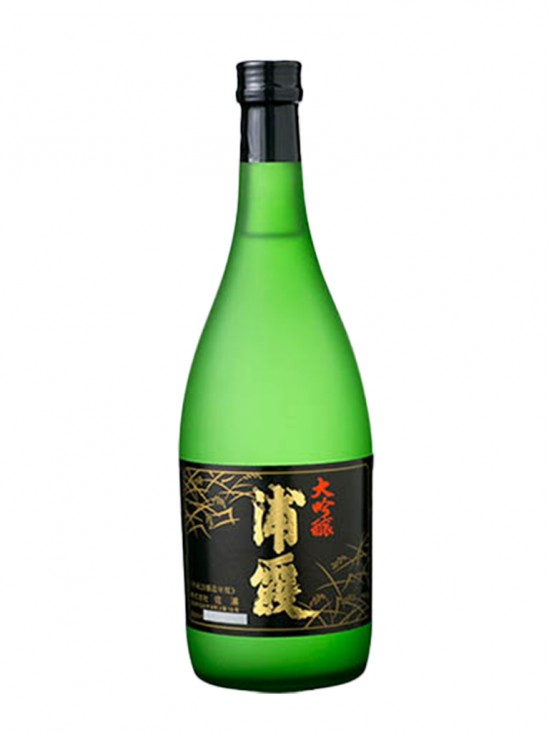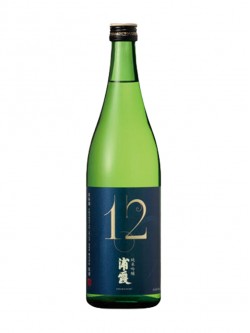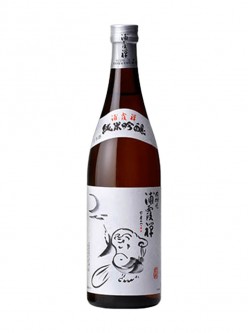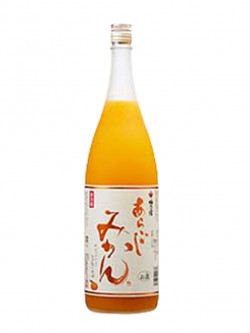Daiginjo Urakasumi

- Model: Daiginjo Urakasumi
- SKU: J-SK-164
- Volumn: 720ml
- Alcohol Level: 16.0% - 16.9%
Tasting Notes
The kanji 大吟醸 also served for Riedel Vinum Daiginjo's design for its enjoyability in a wine glass. Medium-high umami impression, medium acidity and slightly sweet mouthfeel.
1. What is sake?
Sake is an alcoholic drink made from fermented rice, the drink enjoys widespread popularity and is served at all types of restaurants and drinking establishments.
2. What is Junmai?
Junmai (纯米) is the Japanese word meaning “pure rice.” This is an important term in the world of sake, as it separates pure rice sake from non-pure rice sake. Additionally, the Junmai classification means that the rice used has been polished to at least 70 percent. Junmais have subdued aromas and richer body; ginjos, on the other hand, have more expressive aromas of fruit and floral notes, with a softer finish.
3. What is Junmai Daiginjo?
The Junmai Daiginjo (纯米大吟醸) category has the highest standards of milling rates in the sake market with a minimum of 50% rice polishing and 50% remaining. But that standard is often surpassed by brewers looking to push the rice milling envelope that results in sakes that can be milled down to 35% down to 23% and even 7% remaining figures. These Ultra and Uber Junmai Daiginjo all drink with an elegance and sophistication of flavors and complexities.
4. What is Ginjo?
Ginjo (吟醸) sakes have a minimum of 60% seimaibuai, or percentage of rice remaining after polishing. It contains a small amount of distilled brewers’ alcohol. Ginjos tend to be crowd pleasers: they are smooth, easy drinking, and have great balance.
5. What is Junmai Ginjo?
Junmai Ginjo (纯米吟醸) is premium sake that uses rice that has been polished to at least 60 percent. It is brewed using special yeast and fermentation techniques. The result is often a light, fruity, and complex flavor that is usually quite fragrant. It’s easy to drink and often (though certainly not as a rule) served chilled.
6. What is Tokubetsu Junmai?
Tokubetsu junmai ("special pure") is a special designation for high-quality sake, the indigenous and traditional rice wine that has become a strong symbol of Japan's national culture. To qualify as Tokubetsu Junmai, a sake must be made with rice polished to less than 60 percent of its original weight. It is prohibited to fortify Tokubetsu Junmai with distilled alcohol.
7. What is Honjozo?
Honjozo (本醸造) also uses rice that has been polished to at least 70 percent (as with junmai). However, honjozo, by definition, contains a small amount of distilled brewers alcohol, which is added to smooth out the flavor and aroma of the sake. Honjozo sakes are often light and easy to drink, and can be enjoyed both warm or chilled.
8. What is Special sake?
Sake can be made in different fashions to produce more variations of sake aparts from the six major categoies of Sake. Special Sake includes Nama, Koshu, Kijoshu, Sparkling, Genshu, Nigori, Taru, Fruity sakes and etc
9. What is Fruity sake?
A mixture of fruit or fruit juice added into sake to create cleanest and freshest of flavours. This is a rather popular form of the drink. It includes fruits flavors such as apple, cherry and raspberry. It is sweet and fruity and ideal for mixing cocktails.




